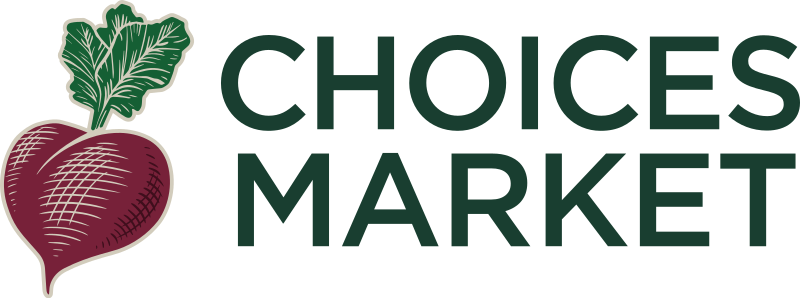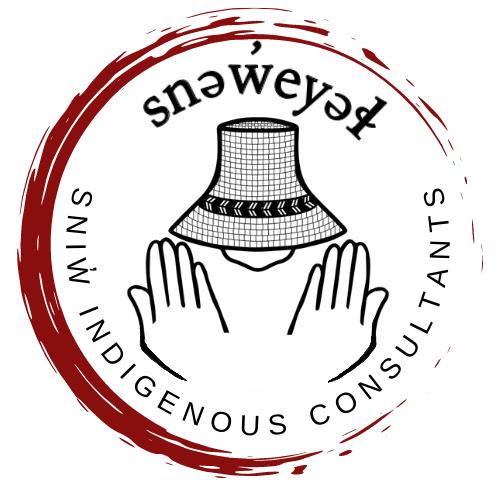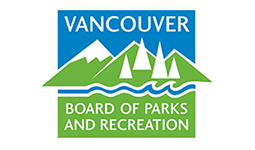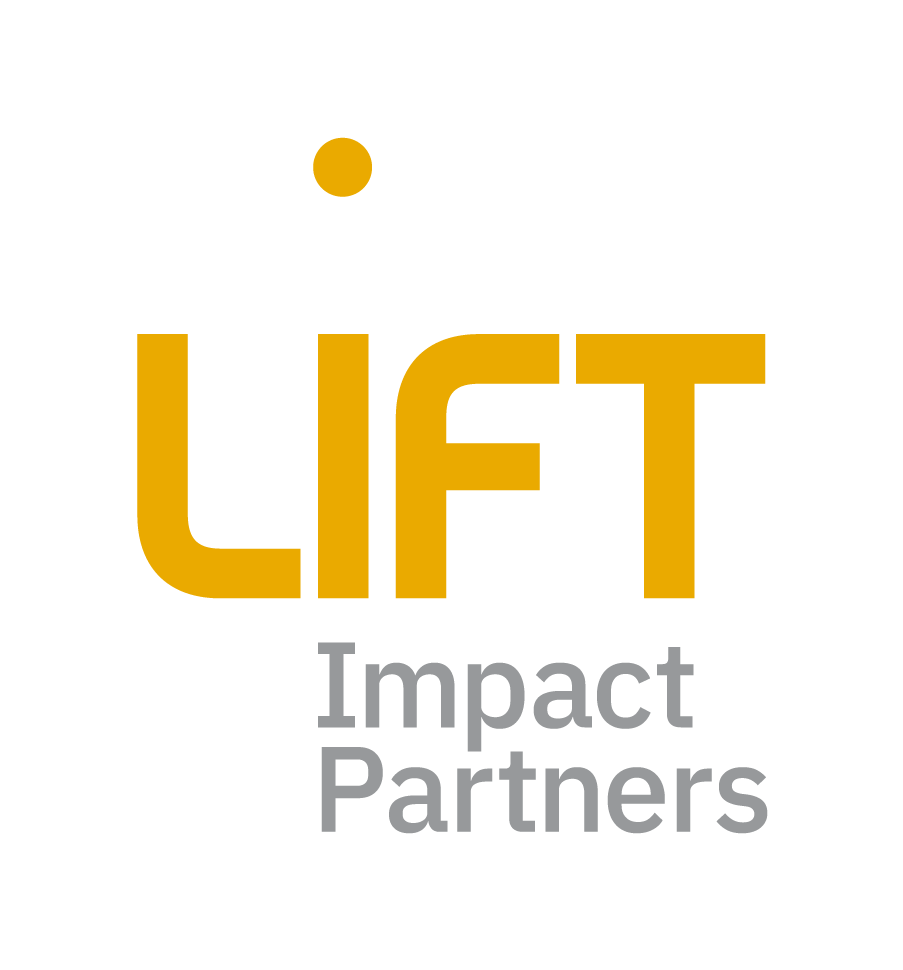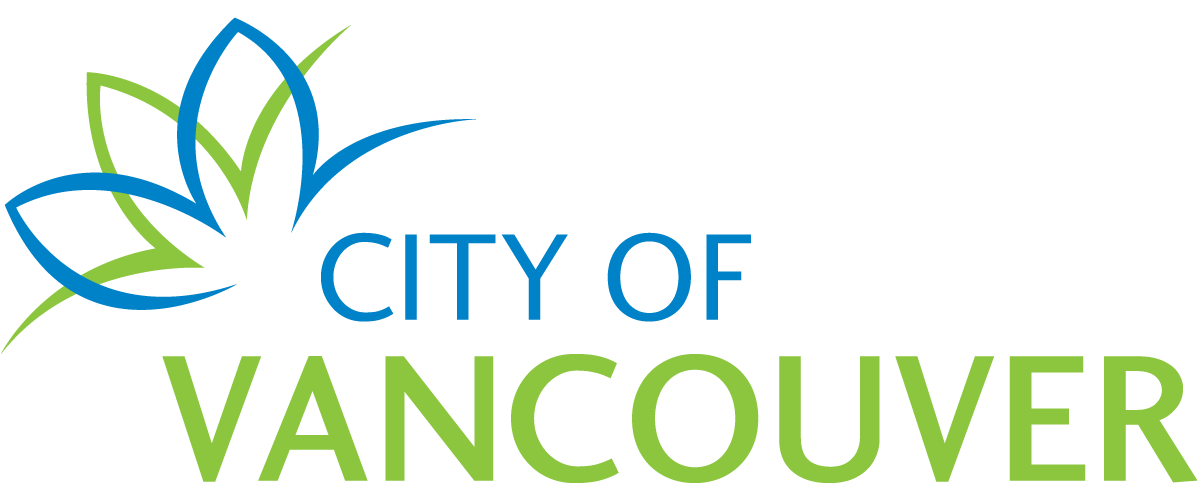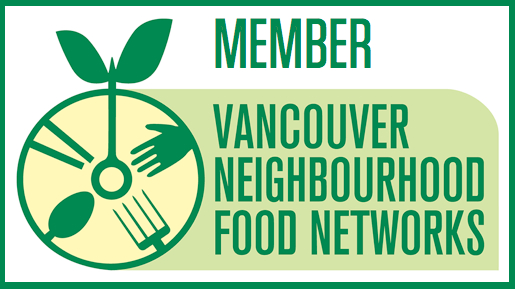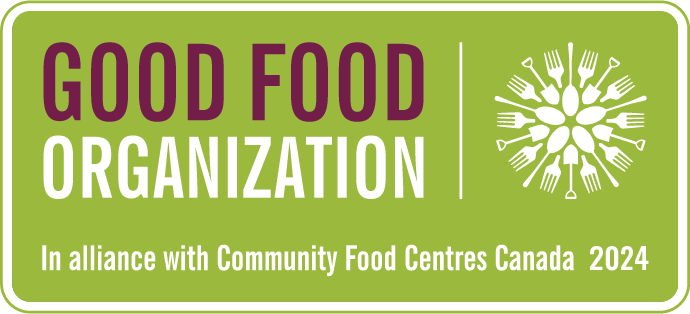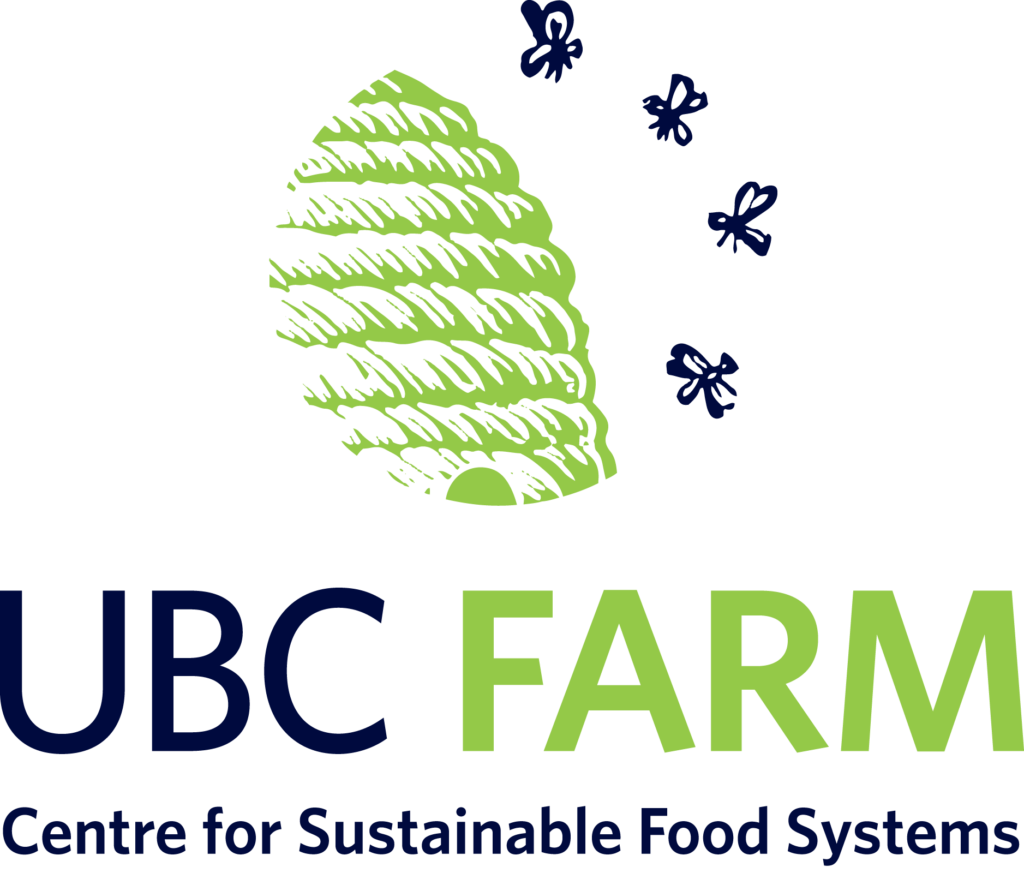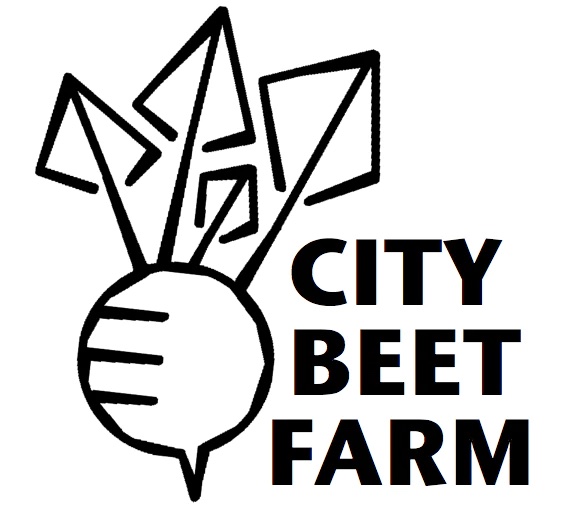Exciting news! We have been selected for the UBC CUES grant. Read about our project and the other recipients here.
Food Hub
Growing food and growing community are intertwined activities important to a healthy and resilient neighbourhood. Our goal is to ensure that all our residents have access to healthy, affordable, culturally appropriate, and nutritious food. We are growing the community — one connection at a time.
The LMNH Food Hub is our response to increased food insecurity in our community. Our mission is to create a local, community-led food system. We aim to reduce food insecurity in our community, and increase access to healthy food in a way that promotes dignity, equity and respect. We are dedicated to providing space to grow food, build community, and care for the lands on which we live, work, and play. Our Food Hub focuses on two priorities in our community: Growing Our Food and Feeding Our Community.
Download our handbook to learn more about the Food Hub and how you can get involved!
Come and volunteer with us! We offer a variety of volunteer opportunities for all of our programs. Contact the coordinator of the program you are interested in for more information.
The Team
Maria Valenzuela
Director of Community & Family Resources Departments
(604) 879-7104 ext. 401
mariav@lmnhs.bc.ca
Joanne MacKinnon
Community Engagement Coordinator
(604) 879-7104
joannem@lmnhs.bc.ca
Maria Paula Amortegui
Food Distribution Coordinator
(236) 862-8280
fooddistribution@lmnhs.bc.ca
Building Collective Food Resilience
Our infographic and toolkit for building collective food resilience are now available. The toolkit was designed to support community-based organizations in this work and offer practical examples, resources, and tips for implementation. It will be updated as we continue to work through the strategies and receive feedback.
Feeding our Community
Our programs aim to increase access to locally grown, culturally appropriate food and build community.
We feed our community by running a weekly food distribution program, delivering quarterly food hampers and meals to seniors and providing gift cards to families. These programs provide the opportunity for community members to build connections with each other as well as our staff and volunteers. They also provide non-judgmental, low-barrier spaces where individuals who are experiencing food insecurity can feel welcomed and supported.
Growing our Food
The gardens are community spaces that aim to tackle food insecurity while enhancing community engagement.
We grow food in the Riley Park Community Garden (RPCG) through the Yard Garden Harvest Project and in partnership with the UBC Farm Practicum Program. Our programs and partnerships improve our community’s food sovereignty, allowing community members to develop connections with neighbours and learn how to grow their own food. The food we grow also provides healthy, locally grown produce for our Food Distribution program.
Food Hub programs
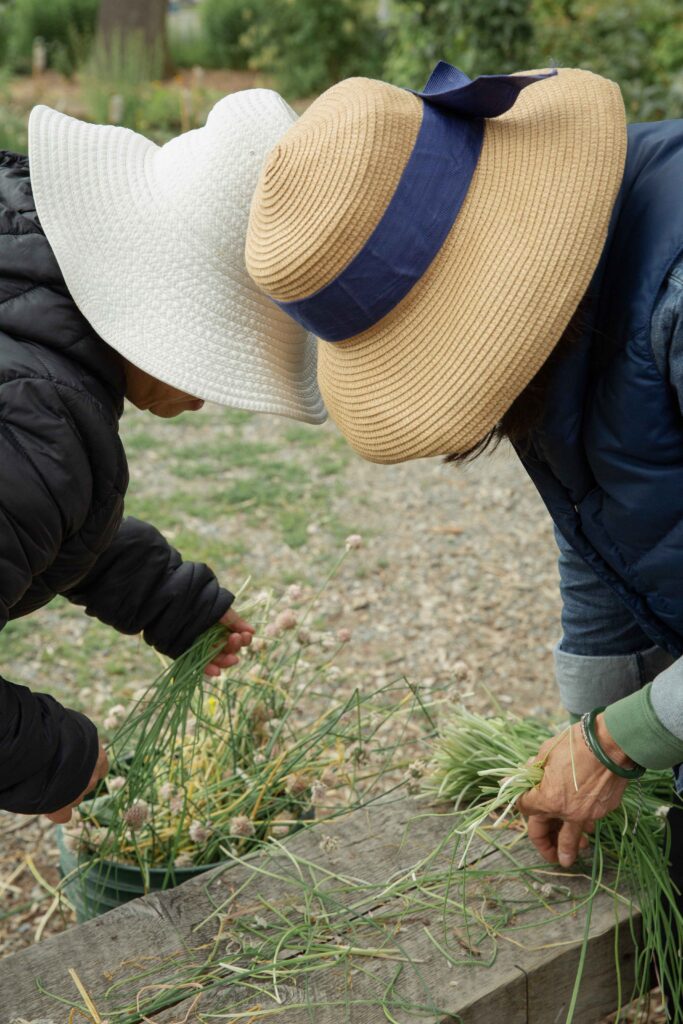
Riley Park Community Garden
Riley Park Community Garden (RPCG) has a communal model of community gardening — which means we share the work and share the harvest.
Harvests are shared among volunteers throughout the growing season, and excess produce is donated to LMNH Food Hub Program.
The garden is also an inclusive gathering place for the larger community, reflecting our core visions to improve food security, ecological sustainability and community development. We host various events during the growing season.
There are no waitlists to join this community garden — just a willingness to show up and join in the fun of growing your own food.
Contact: Joanne at joannem@lmnhs.bc.ca
Download our 2024 RPCG Impact Report
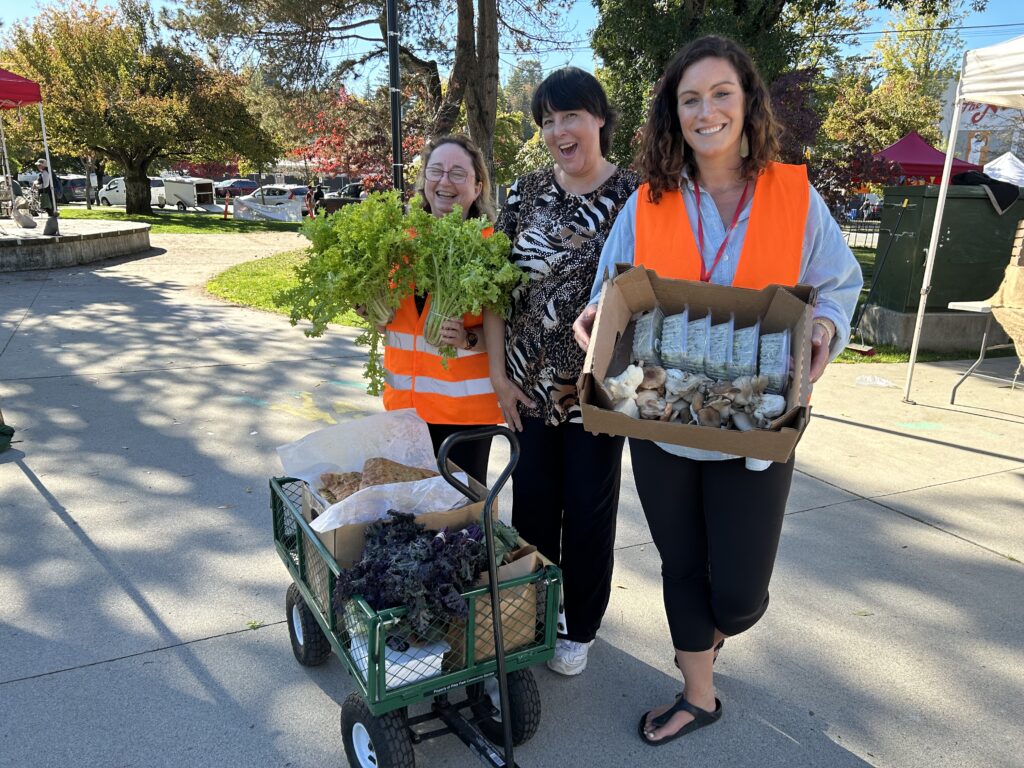
Riley Park Farmers Market Donation Station
We run a monthly donation station at the Riley Park Farmers Market where community members and farmers are able to donate money and produce for our Food Distribution Program.
Where: Riley Park (50 E 30th Ave)
When: First Saturday of each month
Contact: Joanne at joannem@lmnhs.bc.ca
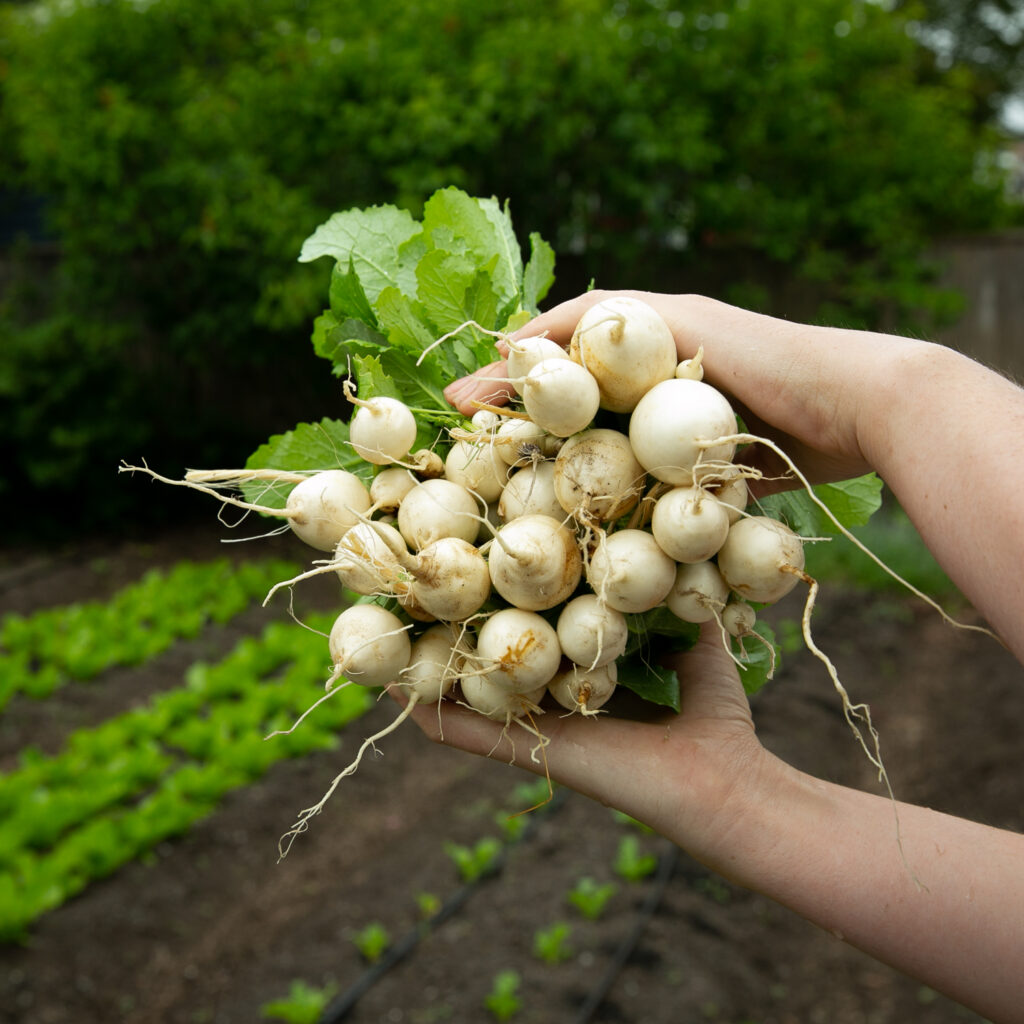
Yard Garden Harvest Project
A community food security project of Little Mountain Neighbourhood House, we are a group of dedicated volunteers and one coordinator who grow food in yards generously shared by Riley Park neighbours.
The produce we grow supplements food from the Vancouver Food Bank in Little Mountain’s Food Distribution Program that serves individuals and families experiencing food insecurity.
The Yard Garden Harvest Project provides community members with a chance to create meaningful connections, contribute to the well-being of our community through volunteering and learn and practice sustainable farming.
Contact: Breagha at ygc@lmnhs.bc.ca for more information.
Download our 2024 Yard Garden Impact Report
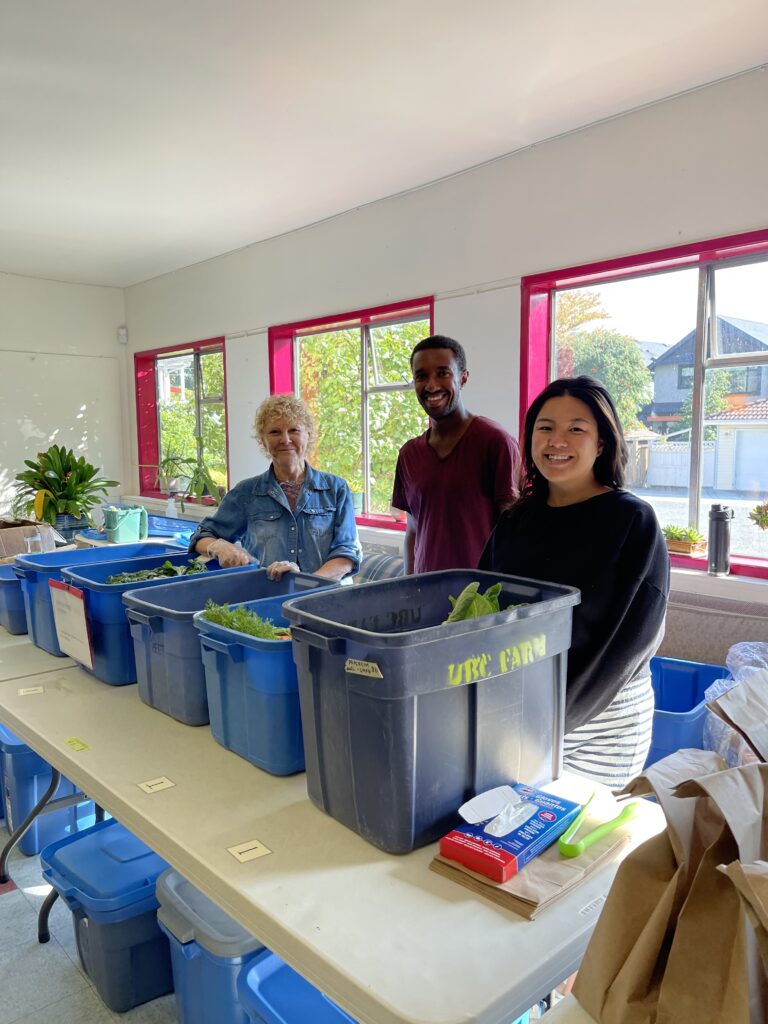
Food Distribution Program
The LMNHS Food Distribution Program was created due to increased food insecurity in our community during COVID-19. Starting out as a hamper program, it has evolved into a market style program where food is displayed on tables allowing participants to choose their food items. Operating on a weekly basis, we aim to provide healthy, culturally appropriate fresh produce and non-perishable food items at no cost.
Our program is currently only able to serve individuals who live within the geographic boundary from Cambie to Knight St and 16th to 49th Ave.
Contact: Maria P at fooddistribution@lmnhs.bc.ca
Download our 2024 Food Distribution Impact Report
Volunteer with us!
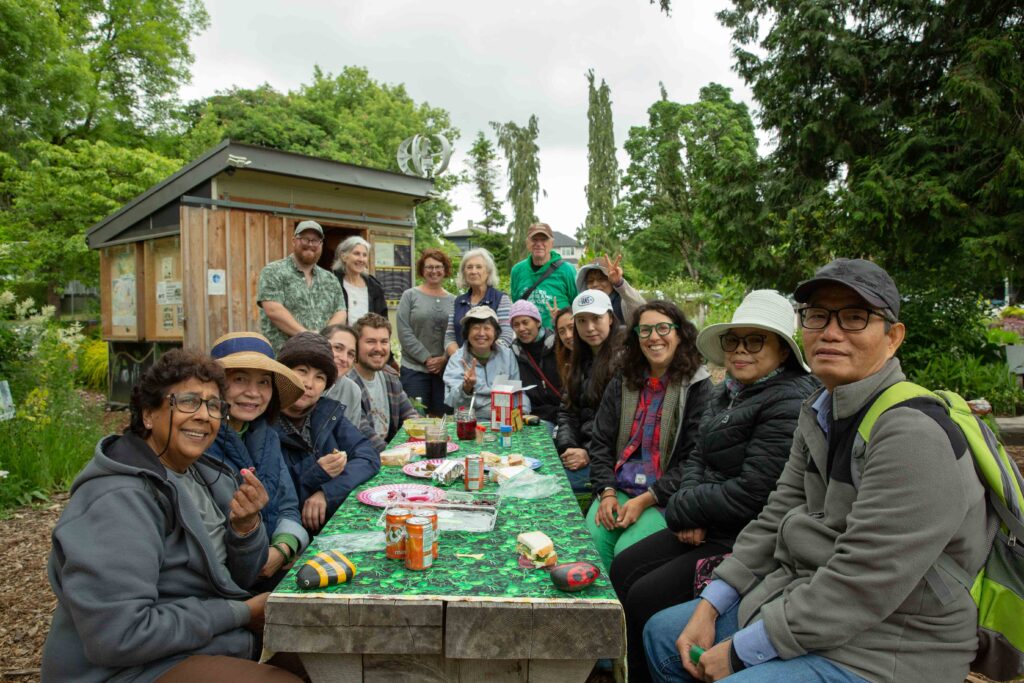
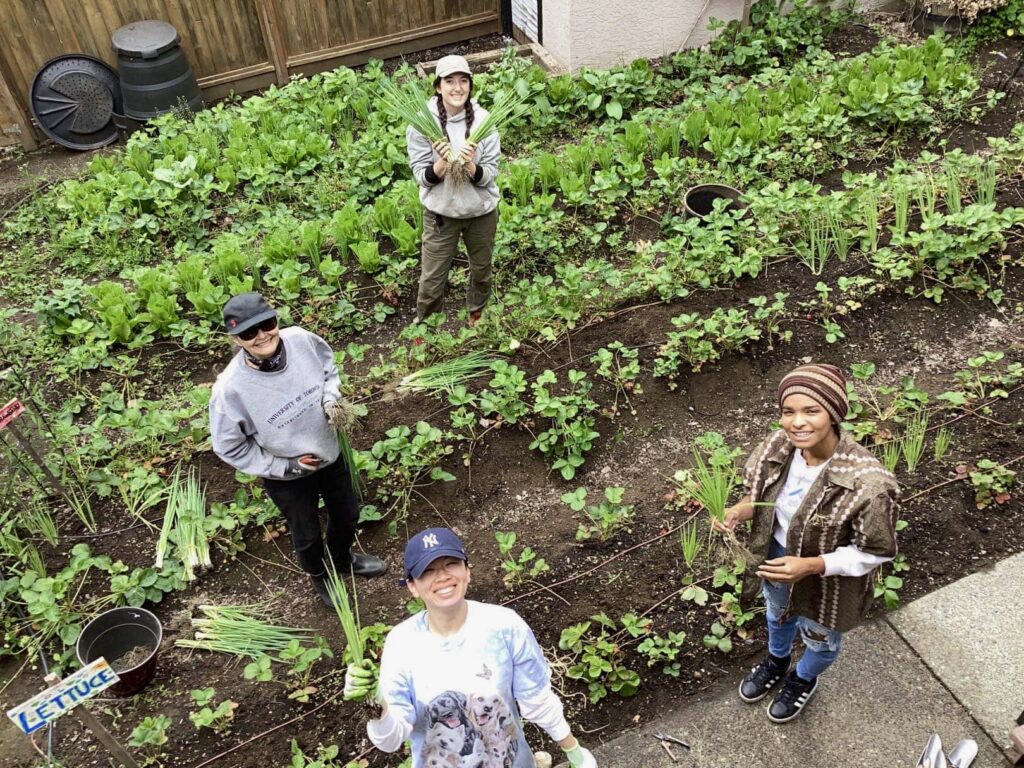
We offer volunteers:
- Short garden shifts that include tasks such as planting, weeding, pruning, harvesting, and watering produce. Garden shifts are 2–3 hours long and are a great way to connect with new people!
- Long-term leadership roles that can be hands-on in the garden or remote. Leadership roles are a great way to gain meaningful work experience that will challenge you and give you key skills that can be applied to leadership positions in the future.
- Opportunities to become a mentor or mentee for those involved in leadership roles.
- Opportunities to organize community events that include games, prizes, and updates about the impact of the project
- Reference letters for engaged and committed volunteers.
- A certificate for volunteer hours completed.
How to get involved:
Apply by filling out our Volunteer Application Form.
For more information and questions, please contact the coordinator of the program you are interested in.
Our Funders and Partners

